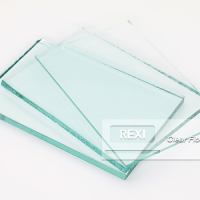
Date: 30 September 2024
The Carbon Border Adjustment Mechanism (CBAM) adopted in 2023 is a policy tool developed by the European Union to try to address carbon leakage by way of imposing a carbon price on imported goods from countries outside the EU. The mechanism foresees that the price paid on imported goods would be equivalent to what would have been paid if the products were produced under the EU’s Emissions Trading System (ETS). However, once an industry enters the CBAM mechanisms, its European operations lose their free CO2 allocation under the EU ETS, at a faster pace than if they stay outside the system thus generating extra costs for EU producers. The CBAM currently covers only a few sectors such as steel, aluminium, cement, fertilizers, and electricity.
While the CBAM is still under a pilot phase and no imported product has yet been subject to carbon pricing, the entire system and its architecture is already very much criticised. The first phases of implementation proved extremely complex, for example to determine the carbon content of imported goods or the levy to be paid. More globally, many EU decision-makers are also questioning the negative impacts that CBAM could have on the covered industries. For instance, in his report on the future of EU competitiveness, Mario Draghi, points out that the CBAM could potentially increase costs for European industries already burdened by high energy prices, lead to opportunistic trade flows weakening Europe’s value-chains and generate a big administrative burden. Despite these concerns, the European Commission services are bound to move forward in implementing the CBAM.
European Commission services have started to make an assessment of the CBAM extension to other energy-intensive industries, including the manufacture of flat glass. Over the summer, Glass for Europe has engaged in discussions with the EC competent services and their consultants, who are currently preparing the first assessment. By mid-2025, EC services intend to present their recommendations on whether or not the CBAM should be extended to other sectors and the flat glass industry. After careful and thorough analysis and discussions on the opportunities and risks associated with CBAM, Glass for Europe has formalized a position, which it now pro-actively advocates: ‘The flat glass industry does not wish to be prematurely entered into the CBAM under its present format and with today’s uncertainties.’ Yet this position can be ‘re-evaluated as the instrument evolves or its implementation and impacts are better analysed.’
This position has been communicated to EC services and their consultant but was also made public since mid-September by way of a position paper and the Glass for Europe Chairman’s Op-ed in Euractiv:
‘The EU’s Carbon Border Adjustment Mechanism is not the solution for our sector. Risks are high that exports can shift from the flat glass material to higher added-value downstream products, which will seriously hit the entire value-chain.’
Davide Cappellino, President AGC Glass Europe & Americas, Chairman of Glass for Europe
Stay tuned for more on this complicated file.
 600450
600450


















Add new comment